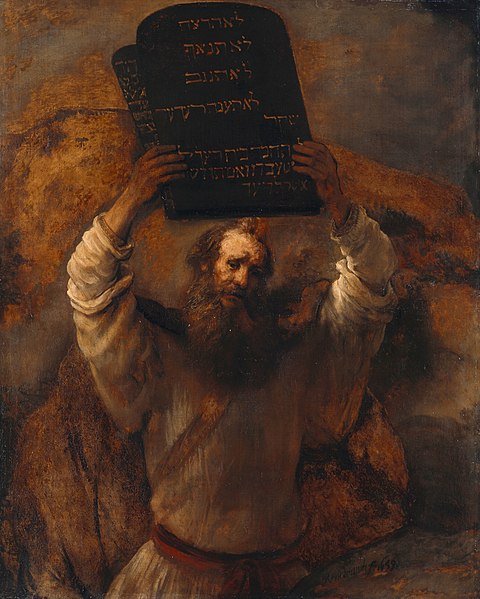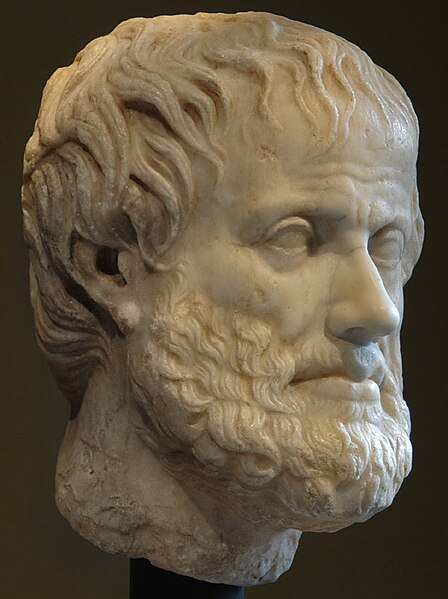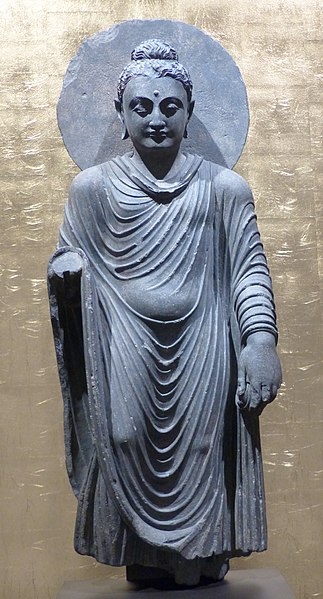The Ten Commandments, or the Decalogue, are a set of biblical principles relating to ethics and worship originally from the Jewish tradition that play a fundamental role in Judaism and Christianity. The text of the Ten Commandments appears in three different versions in the Bible: at Exodus 20:2–17, Deuteronomy 5:6–21, and the "Ritual Decalogue" of Exodus 34:11–26.
This 1768 parchment by Jekuthiel Sofer emulated the 1675 Ten Commandments at the Amsterdam Esnoga synagogue
1896 illustration depicting Moses receiving the commandments
Moses Breaking the Tablets of the Law (1659) by Rembrandt
The Ten Commandments as they appear in a Torah scroll
Ethics or moral philosophy is the philosophical study of moral phenomena. It investigates normative questions about what people ought to do or which behavior is morally right. It is usually divided into three major fields: normative ethics, applied ethics, and metaethics.
According to Aristotle, how to lead a good life is one of the central questions of ethics.
According to discourse ethics, as formulated by Jürgen Habermas, moral norms are justified by a rational discourse within society.
Philippa Foot was one of the philosophers responsible for the revival of virtue ethics in the 20th century.
The practices of compassion and loving-kindness are key elements of Buddhist ethics.








